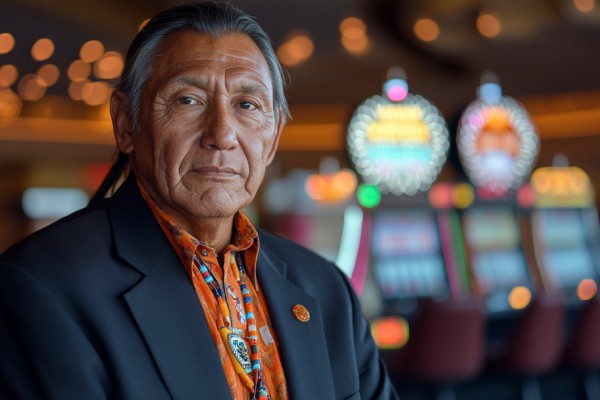Why Passing Online Gambling Legislation in California is Tricky


When the SCOTUS overturned the federal bans on sports betting and online gambling in 2018, it gave lawmakers in each state the absolute right to decide on the fate of gambling expansion in their restrictive states. To date, 7 states have passed iGaming (online casino gambling) legislation and a whopping 39 states have signed on the dotted line regarding retail and or online sports betting.
From a wealth perspective, 3 were immediately seen as golden geese for sports betting and iGaming operators. That short list included California, New York, and Texas. To date, New York is the only one of these three states to pass gambling expansion legislation when state lawmakers approved online sports betting in 2022. Getting such legislation passed in California & Texas has proven to be difficult.
For this blog, I want to focus my efforts on California. Given the state’s reputation for supporting various forms of gambling in Nevada, it’s interesting to note the level of reluctance to get sports betting and iGaming legislation passed. The reasons are intriguing.
Reasons for California’s Struggle in Passing Sports Betting and iGaming Legislation
I would like to start by saying billions of gambling dollars are on the line in California. One only has to look at the massive number of Californians who travel to Las Vegas/Reno/Tahoe Nevada every weekend.
Immediately, it makes sense that this doesn’t make sense. Why would Californians not want to enjoy betting on sports or playing online casino games of chance from the comforts of home? The truth is they would love the opportunity to gamble from home, but the powers-to-be are standing in the way. Why?
Off the top of my head, I can think of two reasons why gambling expansion legislation keeps getting stuck in the mud. Let’s investigate.
Indian Tribe Control
On October 17, 1988, the federal Indian Gaming Regulatory Act (IGRA) became law. The act established the National Indian Gaming Commission, which oversees Tribal-controlled gambling in the U.S.
As part of IGRA and other legislative efforts, many states signed gambling compacts that gave state Tribes a lot of control over various forms of gambling, mainly casino gambling. That control was on full display in Florida over the last 3 years as the state’s Seminole Tribe battled for exclusive rights to offer sports betting (retail and online) and iGaming to Florida residents. It was a hard-fought battle with commercial gaming interests but in the end, the Seminole Tribe prevailed. It’s the only reason that Floridians can now bet on sports.
The issue is similar in California. The California Nations Indian Gaming Association (CNIGA) represents more than a dozen tribes. The Association exists to protect the interests of its members, including their rights to control the state’s gambling landscape.
Where CNIGA derives its power is as a political force. Currently, the Indian population sits at close to 700,000 people spread throughout the state. That’s enough voters to influence elections. If CNIGA says no to sports betting and iGaming legislation, California lawmakers listen.
Why is CNIGA opposed to retail and online sports betting and online casino gambling? Their retail casinos are cash cows. This revenue is un-taxed and goes to fully support most participating Tribes. However, the concern lies with any legislation that could lead to the savaging of the revenue streams. It’s noteworthy that CNIGA has given token concessions to poker rooms and race tracks, receiving certain considerations in exchange for standing down.
A change of heart towards online gambling
Initially, CNIGA wanted nothing to do with gambling expansion. They weren’t willing to sacrifice gambling and visitor-related revenue to its members. That opposition lasted until Tribal leaders saw the revenue that was being generated by such activities in many states. Slowly, their position has changed more in favor of gambling expansion as long as it falls under their control.
Over the last few election cycles, both Tribal and non-tribal interests have been battling with ballot initiatives. As a result of these battles, there will be no ballot initiative on the November 2024 ballot as both sides failed to get enough signatures from voters.
To be clear, Californians do favor gambling expansion, they just don’t like what’s been presented to them so far.
With the books closed for 2024, CHIGA is turning its focus to the 2026 and 2028 elections. They hope to create a ballot initiative that has adequate support among voters and the Tribal community.
In an interview with another online gambling forum, CNIGA Chairman James Siva made clear that the California Tribal community must maintain control over gambling in the state. In the interview, he stated:
“Actual decisions on what this looks like will come from tribal leaders specifically, Adding, “There will always be opportunities for attorneys and consultants to come in and help us fine-tune things, to point out what we missed, but the overall emphasis of priorities needs to come from tribal leaders.”
Nevada Lobbyist Intervention
For close to 70 years, Las Vegas casino operators have had the full support of millions of California visitors. It’s fair to say California is the reason gambling has flourished in Nevada. It should not surprise anyone that, during election time, Nevada casino lobbyists are filling the hallways of the State Capitol in Sacramento.
As is the case with CNIGA, Nevada’s casino owners have a huge vested interest in keeping Californians from having the ability to gamble from home. They need that gaming revenue and all that money that flows in from hearty visitors with lots of money to spend. That’s why they are pouring hundreds of millions every year into lobbying efforts. It boggles the mind to think about what kind of concessions California politicians are getting in support of Nevada casino operations.
The battle ensues in California. With that said, there is movement on the sports betting front if cardroom owners and Tribal interests can reach a compromise in the next couple of years.